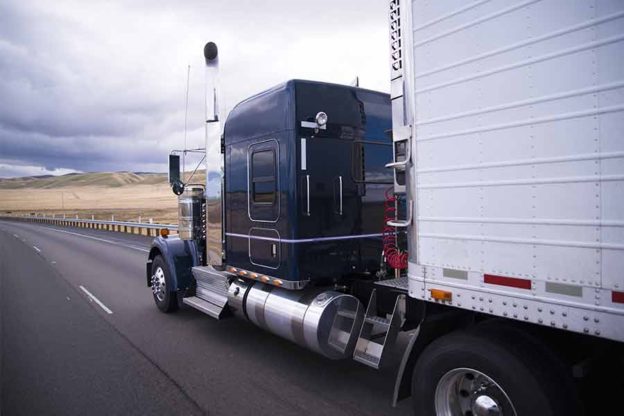To remain current on highway and driver safety, trucking companies must constantly observe any new regulations put in place. At the start of 2020, both trucking and traditional drivers experienced regulatory changes, from identification to drug and alcohol clearinghouse compliance procedures.
However, with the unprecedented effects of the COVID-19 pandemic, a few of the planned regulation adjustments have been postponed. Therefore, it is crucial to ensure you are aware of each change and when they come into effect to prepare your trucking company accordingly. In the content below, we discuss five new trucking regulations to be aware of in 2020.
Real ID
As a national federal regulation, all drivers from every state and territory previously had until Oct. 1, 2020 to transition their driver’s license to a Real ID. This new form of identification complies with new background and security requirements. For any drivers who fail to acquire their Real ID after October 1, 2020, their traditional driver’s license will deny access for commercial aircraft boarding, authorization to nuclear facilities, or entry into federal buildings while on business.
However, as of late March 2020, the Department of Homeland Security extended the deadline one year due to delays brought by the Coronavirus pandemic. As a result, the Real ID deadline is now extended to October 1, 2021.
Revised Entry-Level Driver Training Rules
For those in pursuit of their Class A or Class B Commercial Driver’s License (CDL), this new federal trucking regulation is especially imperative to prevent failure of compliance.
Beginning February 7, 2020, the Federal Motor Carrier Safety Association (FMCSA) instituted a new set of higher standards for professional truck driver licensure. However, training programs have until February 7, 2022 to alter their programs in full compliance with the new regulations in response to the Coronavirus pandemic.
Therefore, to qualify for your Class A or Class B CDL, all aspiring truckers are required to successfully complete an entire training program. The federal Entry-Level Driver Training course now consists of 19 behind-the-wheel assessments (reported by a training provider to the Department of Transportation) in conjunction with passing knowledge of 31 course topics.
Additionally, any existing truckers who intend on becoming a driving instructor must hold a clean motor vehicle record (MVR), a cleared medical certification, and have two or more years of driving experience.
Updated Hours of Service Regulations
At the close of 2019, the FMCSA announced five new changes to the hours-of-service (HOS) federal regulations. As summarized by PrePass, the five key changes proposed by the FMCSA aim to increase driver flexibility while maintaining both their safety and the safety of fellow drivers. The five HOS changes are as follows:
30-Minute Breaks
Drivers may retain the 30-minute break rule. However, to increase driver flexibility, they may tie it to eight hours of driving time, in lieu of eight hours of “on-duty” time. This allows the 30-minute break to be satisfied by a driver using on-duty, idle driving status, as opposed to off-duty.
10 Hours of Off-Duty
In modification of the sleeper-berth exception, this change allows drivers to split their required 10 hours off-duty into one period of at least seven consecutive hours in the sleeper berth and the other period of not less than two consecutive hours, either off-duty or in the sleeper berth. Neither time period would count against the maximum 14-hour driving window. Current HOS rules only allow an eight hour-two hour split, and the shorter rest period is currently counted against the maximum 14-hour driving window.
Off-Duty Breaks
This HOS change allows truck drivers to take a single off-duty break of at least 30 minutes and up to three hours, pausing the driver’s 14-hour driving window, provided the driver takes 10 consecutive hours off-duty at the end of the work shift. This proposal would accommodate disruptions in the driver’s workday, such as weather, traffic and extended detention times.
Driving with Adverse Weather Conditions
Modifying the adverse driving conditions exception, this new regulation extends by two hours the maximum window during which driving is permitted. Currently, truck drivers can extend their 11 hours of driving time to 13 hours under adverse conditions, but the 14-hour driving time window is not extended. The FMCSA believes this will allow drivers to wait out or drive slowly through adverse weather conditions, rather than driving ahead to stay within their allowable driving window.
Electronic Logging Devices (ELDs) and the Short-Haul Exception
This final HOS change adjusts the short-haul exception by lengthening the drivers’ maximum on duty period from 12 to 14 hours and extending the distance limit within which the driver may operate from 100 air miles to 150 air miles. If adopted, all truck drivers would have a maximum 14-hour workday. Drivers utilizing the short-haul exception would still be required to return to their normal work reporting location at the end of each workday. While those drivers are not required to utilize electronic logging devices (ELDs), their employers must continue to maintain time records.
Overtime Trucking Rule Updates
The last federal overtime regulation update took place in 2004. Therefore, to accommodate for growth in pay rates since then, the U.S. Department of Labor instituted a new, overtime trucking rule effective January 1, 2020. As a result of the new regulation in force, any full-time truckers are considered non-exempt and are entitled to receive overtime pay if they make less than $35,568 annually.
Drug and Alcohol Clearinghouse
Despite having only been in effect since January 6, 2020, the FMCSA has already identified nearly 8,000 violations pertaining to substance abuse. The new, drug and alcohol clearinghouse -regulations imposed by the FMCSA require that all motor carriers, fleets, trucking companies, third-party administrators, medical review officers (MROs), and substance abuse professionals report any detected drug and alcohol testing violations.
Through an online database called The Drug and Alcohol Clearinghouse, both the FMCSA and employers can then monitor all violations in every state and national territory in real-time to prevent violators from crossing state lines for work to avoid detection. Additionally, all trucking companies must populate the database with employee Department of Transportation (DOT) substance abuse and verify that the delinquent drivers complete their return-to-duty requirements.
Currently, the FMCSA tracks drug testing violations through urine samples to detect alcohol and drug use, but may lead to hair follicle testing or oral fluids better to identify drug use within the last 90 days. With these new regulations in place, our nation can help improve driver safety while in transit and on the road. Furthermore, with this database in effect nationwide, commercial driving companies can better detect any truck driver applicants who have a history of driving and substance violations.
Help Your Trucking Company Thrive with Advanced Capital Commercial
While balancing the new regulations placed in effect every year, it may be hard to also keep current with your financial and bookkeeping tasks. At Advanced Commercial Capital, we are dedicated to helping your trucking company thrive. When dealing with the high demand for trucked deliveries while remaining in compliance with the new driving and driver regulations, we tailor our solutions to the cash needs of the trucker.
We understand the unique needs and challenges trucking companies face. From paying for fuel to truck maintenance and payroll, it is hard to wait on delinquent customer payments. To get in touch, contact us today at 855.465.4655 or via our online contact form! We look forward to walking beside your company and watching it thrive.


